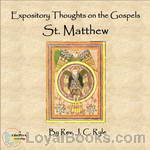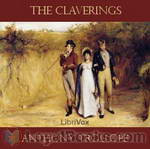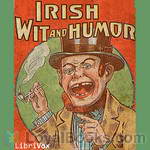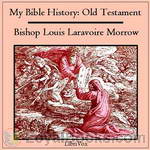|
Books Should Be Free Loyal Books Free Public Domain Audiobooks & eBook Downloads |
|
|
Books Should Be Free Loyal Books Free Public Domain Audiobooks & eBook Downloads |
|
Top Authors |
|---|
|
Book type:
Sort by:
|
By: St. Benedict of Nursia (ca. 480-547) | |
|---|---|
 The Rule of St. Benedict
The Rule of St. Benedict
The Rule of Saint Benedict (Regula Benedicti) is a book of precepts written by St. Benedict of Nursia for monks living communally under the authority of an abbot. Since about the 7th century it has also been adopted by communities of women. During the 1500 years of its existence, it has become the leading guide in Western Christianity for monastic living in community. The spirit of St Benedict's Rule is summed up in the motto of the Benedictine Confederation: pax ("peace") and the traditional ora et labora ("pray and work").(Introduction from Wikipedia) | |
By: J. C. Ryle (1816-1900) | |
|---|---|
 Expository Thoughts on the Gospels - St. Matthew
Expository Thoughts on the Gospels - St. Matthew
“Expository Thoughts” divides the Gospels into sections of about twelve verses each, from which J. C. Ryle selects two or three prominent points to dwell on and bring to the reader’s attention. In Ryle’s day, there were many detailed commentaries and expositions on scripture. In writing these “Expository Thoughts”, Ryle aimed to offer a resource to the laity for use in family prayers, as an aid to those who visit the sick and desire a proper book to read on such occasions, and for private devotions for those whose callings and engagements make it impossible for them to read large commentaries... | |
By: Anonymous | |
|---|---|
 The Cloud of Unknowing
The Cloud of Unknowing
The Cloud of Unknowing (Middle English: The Cloude of Unknowyng) is an anonymous work of Christian mysticism written in Middle English in the latter half of the 14th century. The text is a spiritual guide on contemplative prayer in the late Middle Ages. The book counsels a young student to seek God, not through knowledge and intellection (faculty of the human mind), but through intense contemplation, motivated by love, and stripped of all thought. This is brought about by putting all thoughts and desires under a "cloud of forgetting", and thereby piercing God's cloud of unknowing with a "dart of longing love" from the heart... | |
By: Anthony Trollope (1815-1882) | |
|---|---|
 The Claverings
The Claverings
"I consider the story as a whole to he good, though I am not aware that the public ever corroborated that verdict." - the author The Claverings is the best wrought of the novels designed for The Cornhill, and as surely conceived as any book he ever wrote." - Sadleir. "It is a novel of atmosphere, and the atmosphere is of that sort very dangerous for the English novelist, the atmosphere captured so supremely well by Thackeray the green-lighted, close-scented gambling rooms, the shabby adventures of half-deserted spas, the shelving beaches of foreign watering-places, concealed accents, stolen passports, impoverished counts and impertinent ladies' maids... | |
By: Anonymous | |
|---|---|
 Irish Wit and Humor
Irish Wit and Humor
Excerpted anecdotes from the biographies of Swift, Curran, O'Leary and O'Connell, relating humorous snippets of politics in 18th and 19th century Ireland. For some these may be poignant in addition to being humorous and for others they may be humorous in addition to being poignant. ( | |
By: Ben Jonson (1572-1637) | |
|---|---|
 The Alchemist
The Alchemist
An outbreak of plague in London forces a gentleman, Lovewit, to flee temporarily to the country, leaving his house under the sole charge of his butler, Jeremy. Jeremy uses the opportunity given to him to use the house as the headquarters for fraudulent acts. He transforms himself into 'Captain Face', and enlists the aid of Subtle, a fellow conman and Dol Common, a prostitute. In The Alchemist, Jonson unashamedly satirizes the follies, vanities and vices of mankind, most notably greed-induced credulity... | |
By: Jewish Publication Society of America (1917) | |
|---|---|
 Genesis (JPSA)
Genesis (JPSA)
The first book of the Pentateuch - Genesis. Presented according to weekly parshah.Praised are You, Adonai, Our G-d, ruler of the Universe, who has made us holy with commandments and commanded us to engage in the study of Torah. | |
By: Herman Landon | |
|---|---|
 The Gray Phantom
The Gray Phantom
A woman is apparently murdered in a New York auditorium under very suspicious circumstances one evening during a performance. Helen Hardwick happened to be in attendance that evening, as she had written the play that was being performed, and she was the only person to have caught a glimpse of something peculiar just before the murder. She also heard an ominous laughter which would continue to haunt her. Was it coincidence that the 'retired' Gray Phantom arrived in the city immediately after the murder... | |
By: Jacob Abbott (1803-1879) | |
|---|---|
 Romulus
Romulus
Jacob Abbott wrote many historical books for children. He was careful to ensure historical accuracy, and as he said himself in the preface to this book "Whatever of interest ... these stories may possess is due solely to the facts themselves which are recorded in them, and to their being brought together in a plain, simple, and connected narrative."This is the story of Romulus, the founding of Rome and the early years of its history, written in a way both readable and enjoyable for adults and children alike. | |
By: H. M. Egbert (1879-1960) | |
|---|---|
 Jacqueline of Golden River
Jacqueline of Golden River
Jacqueline seems to have contracted a touch of amnesia, as she is found in an apartment with a dead man, and with a weapon in her hand. But she remembers nothing of any incident, remembers not her name nor where she comes from, not even why she is where she was found. She only remembers her father, and that he is in danger. Action and adventure soon follow, as Paul Hewlett and Jacqueline attempt to get answers to her questions, taking them on a journey into Quebec and points northward, and Paul knows that they are being followed during their trip... | |
By: Thomas Whittaker (1856-1935) | |
|---|---|
 The Origins of Christianity
The Origins of Christianity
The full title of this book is The Origins of Christianity with an Outline of Van Manen’s Analysis of The Pauline Literature. Willem Christiaan van Manen (1842-1905) was a Dutch theologian. The vast majority of van Manen’s radical criticism of the New Testament and Christian origins has never been translated into English.In this book, Thomas Whittaker outlines the arguments of van Manen for an English-speaking audience. Van Manen’s work is not now generally known, but his views obtained notoriety by the articles and books that he wrote, in which he maintained that none of the Epistles that bear the Apostle Paul’s name were in fact written by him... | |
By: Thomas Troward (1847-1916) | |
|---|---|
 The Edinburgh Lectures on Mental Science
The Edinburgh Lectures on Mental Science
Thomas Troward was a divisional Judge in British-administered India. His avocation was the study of comparative religion. Influences on his thinking, as well as his later writing, included the teachings of Christ, Islam, Hinduism, and Buddhism. After his retirement from the judiciary in 1896, Troward set out to apply logic and a judicial weighing of evidence in the study of matters of cause and effect. The philosopher William James characterized Troward’s Edinburgh Lectures on Mental Science as "far and away the ablest statement of philosophy I have met, beautiful in its sustained clearness of thought and style, a really classic statement... | |
By: Owen Wister | |
|---|---|
 Ulysses S. Grant
Ulysses S. Grant
Ulysses S. Grant was the great hero (for the North) in the Civil War and the 18th President of the United States. This short biography is only 145 pages in a little pamphlet size. The author is famous for his stories of the Old West, but he also wrote a substantial body of nonfiction literature. | |
By: Daniel Defoe (1659/61-1731) | |
|---|---|
 Roxana: The Fortunate Mistress
Roxana: The Fortunate Mistress
The full title of the novel is Roxana: The Fortunate Mistress Or, a History of the Life and Vast Variety of Fortunes of Mademoiselle de Beleau, Afterwards Called the Countess de Wintselsheim. The novel concerns the story of an unnamed "fallen woman", the second time Defoe created such a character (the first was a similar female character in Moll Flanders). In Roxana, a woman who takes on various pseudonyms, including "Roxana," describes her fall from wealth thanks to abandonment by a "fool" of a husband and movement into prostitution upon his abandonment. Roxana moves up and down through the social spectrum several times. | |
By: Maurice Leblanc (1864-1941) | |
|---|---|
 813
813
As usual, gentleman thief Arsene Lupin finds himself wrongfully accused of murder, and must find the real killer to clear his coloured name. | |
By: Captain John Smith (1580-1631) | |
|---|---|
 A Description of New England
A Description of New England
Captain John Smith (c. January 1580 – June 21, 1631) Admiral of New England was an English soldier, explorer, and author. He was knighted for his services to Sigismund Bathory, Prince of Transylvania. He is remembered for his role in establishing the first permanent English settlement in North America at Jamestown, Virginia, and his brief association with the Virginia Indian girl Pocahontas during an altercation with the Powhatan Confederacy and her father, Chief Powhatan. He was a leader of the Virginia Colony (based at Jamestown) between September 1608 and August 1609, and led an exploration along the rivers of Virginia and the Chesapeake Bay... | |
By: Harry Harrison (1925-2012) | |
|---|---|
 The Repairman
The Repairman
This is a collection of 3 of Harry Harrison marvelous early stories that were published in Galaxy, Analog and Fantastic Universe. The Repairman (1958) is a straight fun SF story of a man getting a job done. It is most typical of his later style in series like the Stainless Steel Rat; Toy Shop (1962), a short piece exploring bureaucratic blindness and one ingenious way around it and The Velvet Glove (1956), my favorite for its writing style, fun perspective, sly social commentary on the scene in 1956 and just plain delightful imagination. And he manages to pack excitement and mystery in at the same time. | |
By: Frank R. Stockton (1834-1902) | |
|---|---|
 The Bee-Man of Orn and Other Fanciful Tales
The Bee-Man of Orn and Other Fanciful Tales
A collection of nine enchanting short stories filled with curious beasts and unexpected endings. Included are The Bee-Man of Orn; The Griffin and the Minor Canon; Old Pipes and the Dryad; The Queen's Museum; Christmas Before Last: Or, The Fruit of the Fragile Palm; Prince Hassak's March; The Battle of the Third Cousins; The Banished King; and The Philopena | |
By: W. Somerset Maugham (1874-1965) | |
|---|---|
 The Magician
The Magician
The Magician is a novel by British author W. Somerset Maugham, originally published in 1908. In this tale, the magician Oliver Haddo, a caricature of Aleister Crowley, attempts to create life. Crowley wrote a critique of this book under the pen name Oliver Haddo, where he accused Maugham of plagiarism. Maugham wrote The Magician in London, after he had spent some time living in Paris, where he met Aleister Crowley. The novel was later republished with a foreword by Maugham entitled A Fragment of Autobiography. (Wikipedia) | |
By: Ida M. Tarbell (1857-1944) | |
|---|---|
 The History of Standard Oil: Volume 1
The History of Standard Oil: Volume 1
The History of the Standard Oil Company is a book written by journalist Ida Tarbell in 1904. It was an exposé of the Standard Oil Company, run at that time by oil tycoon John D. Rockefeller the richest figure in America's history. Originally serialized in 19 parts in McClure's magazine, the book was a seminal example of muckraking, and inspired many other journalists to write about trusts, large businesses that (in the absence of strong antitrust law in the 19th century) attempted to gain monopolies in various industries... | |
By: Various | |
|---|---|
 One-Act Play Collection 003
One-Act Play Collection 003
This collection of ten one-act dramas features plays by Edward Goodman, Alice Gerstenberg, Arnold Bennett, John Galsworthy, Anton Chekhov, Frank Wedekind, Moliere, Theresa Helburn, John Kendrick Bangs, and Harold Brighouse. | |
By: Ray Cummings (1887-1957) | |
|---|---|
 The World Beyond
The World Beyond
Lee Anthony finds himself and two of his friends kidnapped and taken on a strange voyage. | |
By: Ambrose Bierce (1842-1913) | |
|---|---|
|
At the outset of the American Civil War, [the writer Ambrose] Bierce enlisted in the Union Army's 9th Indiana Infantry Regiment....In February 1862 he was commissioned First Lieutenant, and served on the staff of General William Babcock Hazen as a topographical engineer, making maps of likely battlefields. Bierce fought at the Battle of Shiloh (April 1862), a terrifying experience that became a source for several later short stories and the memoir, "What I Saw of Shiloh". In June 1864, he sustained a serious head wound at the Battle of Kennesaw Mountain, and spent the rest of the summer on furlough, returning to active duty in September. He was discharged from the army in January 1865. | |
By: Ludovico Ariosto (1474-1533) | |
|---|---|
 Orlando Furioso
Orlando Furioso
Charlemagne's nephew Orlando (AKA Roland) is driven insane by the infidelity of his beloved Angelica. Angelica's relationship with him and others loosely unifies multiple story lines to produce a rich tapestry of romance, fictionalized history, and pure fantasy. This romance-epic is a sequel to the less distinguished and unfinished romance Orlando Innamorato, by Mattteo Maria Boiardo. | |
By: Herbert George Jenkins (1876-1923) | |
|---|---|
 The Return of Alfred
The Return of Alfred
The hero of the book is at a loose end, weary and bored of his old life after returning from the Great War. After an argument with his uncle and a railway strike he finds himself lost in the county of Norfolk at ten o’clock one night. When he seeks shelter in a country home, the butler immediately recognizes him as “Mr. Alfred”, the missing son of the house. From that point onwards, our hero, who gives his name as “James Smith”, finds himself in for an exciting time.Not only does he inherit the friends of “Mr... | |
By: Louis Laravoire Morrow (1892-1987) | |
|---|---|
 My Bible History: Old Testament
My Bible History: Old Testament
A short, simple Old Testament Bible History for children, but which can also be enjoyed by adults alike. Starting with Creation, the sections cover Adam and Eve, Abraham, Moses, etc. up to the promise of a Redeemer. The same format continues in the volume that follows - My Bible History: New Testament - by the same author. | |
By: Euripides (480-406 BC) | |
|---|---|
 Medea
Medea
Euripides' tragedy focuses on the disintegration of the relationship between Jason, the hero who captured the Golden Fleece, and Medea, the sorceress who returned with him to Corinth and had two sons with him. As the play opens, Jason plans to marry the daughter of King Creon, and the lovesick Medea plots how to take her revenge. | |
By: Charles W. Diffin (1884-1966) | |
|---|---|
 Dark Moon
Dark Moon
Mysterious, dark, out of the unknown deep comes a new satellite to lure three courageous Earthlings on to strange adventures. | |
By: Lloyd Eshbach (1910-2003) | |
|---|---|
 The Gray Plague
The Gray Plague
End of the world sci-fi tale borrows heavily from H.G. Wells' WOTW and In The Days of the Comet -- looks like fun ! | |
By: Aristotle (384 BCE-322 BCE) | |
|---|---|
 De Anima
De Anima
On the Soul (Greek Περὶ Ψυχῆς (Perì Psūchês), Latin De Anima) is a major treatise by Aristotle on the nature of living things. His discussion centres on the kinds of souls possessed by different kinds of living things, distinguished by their different operations. Thus plants have the capacity for nourishment and reproduction, the minimum that must be possessed by any kind of living organism. Lower animals have, in addition, the powers of sense-perception and self-motion (action). Humans have all these as well as intellect... | |
By: Molière | |
|---|---|
 Tartuffe
Tartuffe
Jean-Baptiste Poquelin, known by his stage name Molière, was a French playwright and actor who is considered to be one of the greatest masters of comedy in Western literature. Among Molière's best-known works is Tartuffe or The Hypocrite, written in 1664. Though Tartuffe was received well by the public and even by Louis XIV, its popularity was lessened when the Archbishop of Paris issued an edict threatening excommunication for anyone who watched, performed in, or read the play.Tartuffe, a pious fraud who pretends to speak with divine authority, has insinuated himself into the household of Orgon... | |
By: William Shakespeare (1564-1616) | |
|---|---|
 The Rape of Lucrece
The Rape of Lucrece
The Rape of Lucrece (1594) is a narrative poem by William Shakespeare about the legendary Lucretia. Lucrece draws on the story described in both Ovid's Fasti and Livy's history of Rome. In 509 BC, Sextus Tarquinius, son of Tarquin, the king of Rome, raped Lucretia (Lucrece), wife of Collatinus, one of the king's aristocratic retainers. As a result, Lucrece committed suicide. Her body was paraded in the Roman Forum by the king's nephew. This incited a full-scale revolt against the Tarquins led by Lucius Junius Brutus, the banishment of the royal family, and the founding of the Roman republic. | |